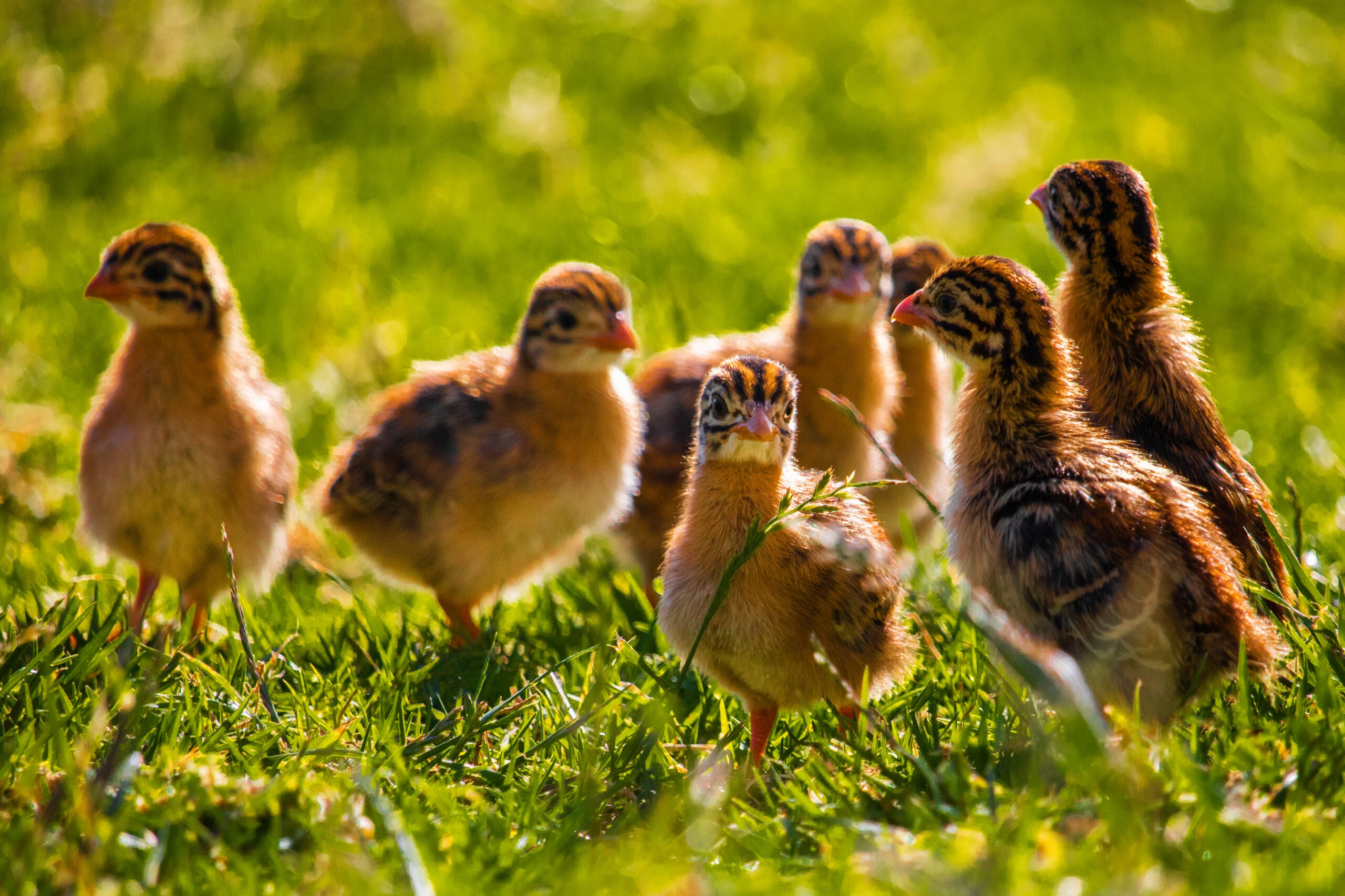How to Care for Guinea Fowl Keets
Raising guinea fowl keets can be a rewarding experience, but it requires careful attention to detail. PC Farm Bees & More is here to guide you every step of the way, ensuring your keets grow strong and healthy. Below, you’ll find a comprehensive guide on how to care for guinea fowl keets.

Setting Up the Brooder
- Prepare a Brooder: To start, you’ll need a brooder—a large box, a child’s swimming pool, or a specially designed brooder will do. Ensure it has solid walls to retain heat effectively. If established on concrete flooring, please create addition space off the flooring to prevent heat escaping.
- Heat Source: For the first week, use a heat lamp to keep the temperature around 95°F (35°C). Reduce the temperature by 5°F each week until the keets are fully feathered (around 6 weeks).
Bedding
- Use Appropriate Bedding: Avoid wood shavings for the first week since keets might ingest them. Instead, opt for paper towels, puppy pee pads to create a safe and comfortable environment.
Feeding
- High-Protein Feed: Start with a turkey or game bird starter feed, which is higher in protein than chicken feed. This helps the keets grow strong and healthy. Ensure the protein source is at least 26%.
- Freshwater: Ensure they always have access to clean, fresh water. Place marbles or small stones in the water dish them from getting wet.
Monitoring Health
- Check Daily: Look for signs of illness or distress, such as lethargy. Ensure they are eating and drinking well.
Check for dropping that can get stuck in their behinds. You can use a warm damp towel to remove the dropping, and dry them off after clean-up.
Transitioning to Outdoors
- Gradual Introduction: Once the keets are fully feathered and the weather is warm, start introducing them to the outdoors gradually. You want to ensure that they are in their coup for at least 6 weeks before letting them outside. When you start letting your keets outside, only let half out at a time during this time. Their nature instinct would be to return to the flock, and this will help with training them to return to the coup at night.
Ongoing Care
- Feeding: Transition to a grower feed as they mature. Continue providing fresh water and monitor their health.
- Free-Ranging: Guinea fowl are excellent for pest control. Allow them to free-range during the day, but ensure they return to the coop at night.
Raising guinea fowl keets requires attention and care but can significantly add to your farm or backyard. If you have any specific questions or run into issues, feel free to contact us.
